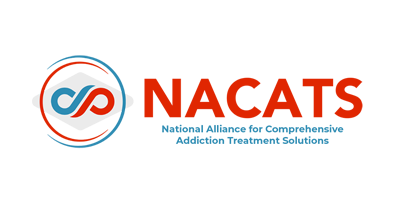Maybe you clicked this page out of fear, worried that tomorrow may finally not come. Or maybe you are worried about a loved one that seemed to spiral after having back surgery. Whatever the case may be, PercocetⓇ (oxycodone/acetaminophen) has entered your life and you want to know what to do.
Prescription opioids have been a prevalent topic for years. While more knowledge has been shared about them and medical teams are intervening, the rate of dispensing of prescription opioids in Tennessee remains higher than the national average. In 2022, 61.5 per 100 people were prescribed opioids. This includes one of the most common – PercocetⓇ (oxycodone/acetaminophen).
At ReVIDAⓇ Recovery, we understand how opioids have affected our communities. Our program addresses the specifics behind PercocetⓇ (oxycodone/acetaminophen) use disorder, helping loved ones heal and patients find their success in recovery.
What We Treat: PercocetⓇ (Oxycodone/Acetaminophen) Use Disorder
PercocetⓇ (oxycodone/acetaminophen) use disorder is more than just the body being dependent on the medication. The person will experience intense cravings and withdrawal symptoms between uses. They will alter their behaviors to obtain more PercocetⓇ (oxycodone/acetaminophen), even if it hurts the ones they love. Their job performance will dwindle, leading to job loss and financial strain. The person may lie and steal to keep their PercocetⓇ (oxycodone/acetaminophen) use continuing, resulting in lost relationships and possible legal troubles.
At ReVIDAⓇ Recovery, we address the complexities behind PercocetⓇ (oxycodone/acetaminophen) use disorder in a safe and welcoming space.
How We Treat: ReVIDAⓇ Recovery’s Approach to PercocetⓇ (Oxycodone/Acetaminophen) Use Disorder
The program at ReVIDAⓇ Recovery is centered around medication-assisted treatment (MAT). Our facilities have medical staff who prescribe and manage Suboxone prescriptions. We believe in utilizing Suboxone as we have seen first-hand the difference it has made in so many patients’ lives. Suboxone gives people hope who thought they would never be able to stop taking PercocetⓇ (oxycodone/acetaminophen) and other opioids.
We also offer outpatient treatment options that include therapies and peer support. PercocetⓇ (oxycodone/acetaminophen) use disorder doesn’t happen overnight, and working through how it began will give you insight into your triggers. Having support from your care team and fellow patients will ensure you always have someone to talk to when things get stressful. The program is flexible and can accommodate a variety of schedules.
What Is PercocetⓇ (Oxycodone/Acetaminophen) Used For?
PercocetⓇ (oxycodone/acetaminophen) is a prescription medication that contains both oxycodone and acetaminophen. It is commonly prescribed for moderate to severe pain. Doses of PercocetⓇ (oxycodone/acetaminophen) range from 2.5mg/325mg to 10mg/650mg. Because PercocetⓇ (oxycodone/acetaminophen) has oxycodone in it, it carries the risk of developing dependence. Oxycodone is an opioid and blocks feelings of pain while slowing the central nervous system.
When taken as prescribed, even if dependence forms, your doctor will be able to help you taper off the medication and avoid withdrawal. When taken illicitly on a regular basis, PercocetⓇ (oxycodone/acetaminophen) use disorder can develop, leading to uncomfortable withdrawal symptoms, behavioral changes, and the possibility of an overdose.

Risk Factors for Developing a PercocetⓇ (Oxycodone/Acetaminophen) Use Disorder
Not everyone who takes PercocetⓇ (oxycodone/acetaminophen) will develop a disorder, but there are risk factors that can increase the likelihood. Some of these include:
- Having a mental health condition such as anxiety or depression
- Having a family member with a substance use disorder
- Being genetically predisposed to reckless behaviors
- Taking PercocetⓇ (oxycodone/acetaminophen) with other substances
- Growing up in a chaotic environment that can include abuse, homelessness, or poverty
Mixing PercocetⓇ (oxycodone/acetaminophen) with other opioids also increases the risk of developing an opioid use disorder. This is where the person will take any opioid, not just PercocetⓇ (oxycodone/acetaminophen).
Dangers Behind Chronic PercocetⓇ (Oxycodone/Acetaminophen) Use
As we mentioned above, PercocetⓇ (oxycodone/acetaminophen) poses the risk of developing dependence. This is because the oxycodone in the medication works by binding to opioid receptors in the brain. Our bodies naturally have opioid receptor responses from hormones like endorphins. PercocetⓇ (oxycodone/acetaminophen), however, activates this response when it is not needed. The results are feelings of euphoria and painlessness followed by drowsiness. Over time, the brain gets used to PercocetⓇ (oxycodone/acetaminophen) being present and will send signals showing a need for the substance. This is where withdrawal begins, inducing feelings of pain and flu-like symptoms. Withdrawal is uncomfortable and causes cravings for more PercocetⓇ (oxycodone/acetaminophen), keeping the person in the cycle of use.
Besides dependence, there is a risk of experiencing an overdose of PercocetⓇ (oxycodone/acetaminophen). When the body becomes overwhelmed with the amount of opioids taken, the central nervous system slows to a halt. This causes breathing to stop and is a life-threatening situation. If an overdose is ever suspected, seek medical attention immediately.
It is also possible to overdose on acetaminophen. The liver is responsible for detoxifying the body of harmful substances. Acetaminophen taken in frequently moderate to large doses can lead to hepatotoxicity that can result in acute liver failure that can cause permanent injury.
How to Know if You Need Help With PercocetⓇ (Oxycodone/Acetaminophen) Use Disorder
Only you can answer if you need help with a PercocetⓇ (oxycodone/acetaminophen) use disorder. Some questions to consider asking yourself include:
- Have you tried to stop taking PercocetⓇ (oxycodone/acetaminophen) and been unsuccessful?
- Have you tried to cut back on how much you take and not been able to?
- Has PercocetⓇ (oxycodone/acetaminophen) come between you and a relationship or job?
- Have you experienced an overdose?
- Have you engaged in negative behaviors that you wouldn’t normally do while taking PercocetⓇ (oxycodone/acetaminophen)?
Answering yes to these questions can be a sign it’s time for help. Seeking a treatment center for PercocetⓇ (oxycodone/acetaminophen) use disorder is nothing to be ashamed of, and can help you stop your use once and for all.
PercocetⓇ (Oxycodone/Acetaminophen) Use Disorder Treatment Options
There are different options for PercocetⓇ (oxycodone/acetaminophen) use disorder treatment, and not every person’s path will look the same. Let’s look at some common treatment modalities for PercocetⓇ (oxycodone/acetaminophen) use disorder.
Medication-Assisted Treatment (MAT)
Medication-assisted treatment (MAT) involves the medication Suboxone. Suboxone contains buprenorphine and naloxone. Buprenorphine is a partial opioid agonist that creates some of the feelings of PercocetⓇ (oxycodone/acetaminophen) but not nearly as strong. Because it bonds to some of the opioid receptors in the brain, it helps prevent cravings and aids in recovery success. This is because naloxone is an opioid antagonist, meaning it blocks the feelings of opioids. The ceiling effect of Suboxone is created by these two medications interacting.
Suboxone is a prescription medication and must come from a medical professional. They will work with you on dosage amounts and frequency to find what works best for you. The dedicated team at ReVIDAⓇ Recovery has Suboxone doctors at all of our locations, ready to help you get started with MAT.
Outpatient Treatment
Outpatient treatment programs involve coming to the facility at some point in the day and receiving therapies. These include cognitive behavioral, dialectical behavioral, group sessions, and more. You will then return home and to daily activities. The frequency of sessions will vary depending on your needs. Your care team will work with you to put together a treatment program that best fits your goals.
ReVIDAⓇ Recovery offers outpatient treatment at various times during the day, including an evening program for those who cannot get away from work or home life responsibilities.
What to Expect From PercocetⓇ (Oxycodone/Acetaminophen) Rehab
In PercocetⓇ (oxycodone/acetaminophen) use disorder rehab, you can expect to bond with like-minded peers as you begin your recovery journey. Daily therapies will take place as you learn the root causes behind your addiction, and learn about how opioids like PercocetⓇ (oxycodone/acetaminophen) affect the mind and body. Case managers will be available should you need help with housing, food, and job skills. Life after opioid use exists, and you will rediscover your passions while attending PercocetⓇ (oxycodone/acetaminophen) rehab.

Start Your PercocetⓇ (Oxycodone/Acetaminophen) Recovery Journey Today at ReVIDAⓇ Recovery
Whether you came to this page for yourself or a loved one, you are in the right place. PercocetⓇ (oxycodone/acetaminophen) use disorder doesn’t have to keep interfering with your life, and help is available right now. Through therapies, MAT, and support from peers and your care team, you will have all the tools needed to find success in your recovery. Don’t wait any longer, take the first step toward a brighter life.
If you or someone you love is living with a PercocetⓇ (oxycodone/acetaminophen) use disorder, reach out to us today. ReVIDAⓇ Recovery specializes in treating opioid use disorders and offers multiple locations throughout Tennessee and Virginia. Most insurance and Medicaid are accepted with same-day appointments available, so there is nothing holding you back. Contact us at 423-631-0432 to get started.
Reclaim your life.







